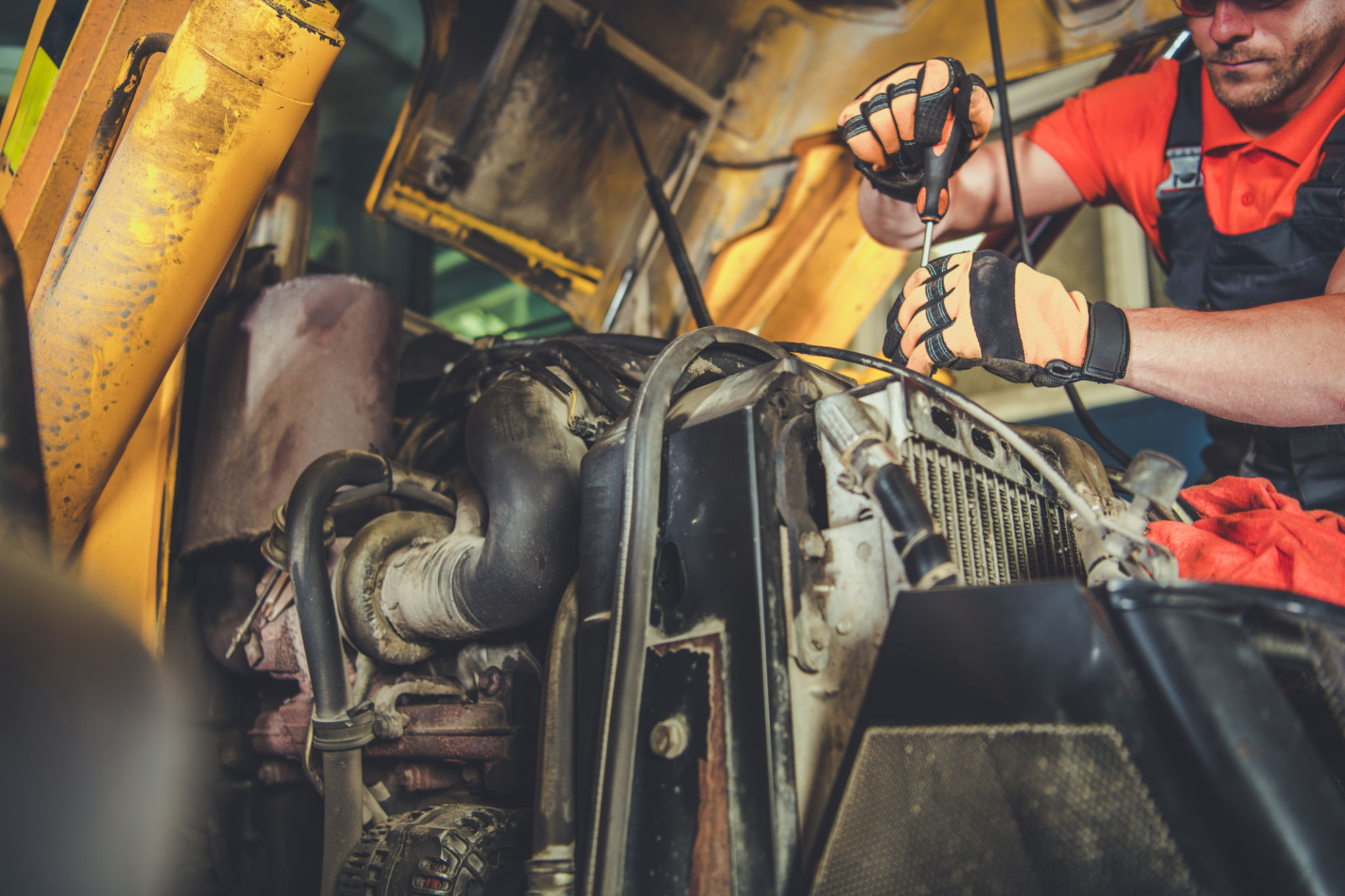The Ultimate Guide to Heavy Equipment Repair: What You Need to Know
Understanding Heavy Equipment Repair
Heavy equipment is the backbone of industries like construction, mining, and agriculture. These machines perform demanding tasks and require regular maintenance and repair to ensure efficiency and longevity. Understanding the essentials of heavy equipment repair can save you time and money, while also extending the life of your machinery.

Recognizing Common Issues
Heavy equipment is prone to wear and tear due to constant use in harsh environments. Some of the most common issues include hydraulic system failures, electrical problems, and engine malfunctions. Identifying these problems early can prevent costly repairs and downtime.
Regular inspections are crucial. Look for signs such as unusual noises, fluid leaks, or performance drops. A proactive approach can help you address minor issues before they become major headaches.
Essential Tools and Equipment
Having the right tools is critical for effective heavy equipment repair. Some essential tools include wrenches, hydraulic jacks, diagnostic software, and welding equipment. Investing in quality tools can make repairs more efficient and safer.

Safety Precautions
Repairing heavy equipment can be dangerous. Always prioritize safety by wearing appropriate protective gear such as gloves, goggles, and helmets. Ensure your workspace is well-organized to prevent accidents.
It's also important to follow proper lockout/tagout procedures to avoid accidental machine start-ups during repairs. Keeping a first-aid kit nearby is a wise precaution in case of emergencies.
Steps to Effective Repair
Effective heavy equipment repair involves several key steps:
- Diagnosis: Identify the problem accurately using diagnostic tools.
- Preparation: Gather all necessary tools and parts before beginning the repair.
- Execution: Follow manufacturer guidelines and technical manuals closely.
- Testing: Once repairs are completed, test the equipment to ensure it operates correctly.

When to Call a Professional
While minor repairs can often be handled in-house, there are times when professional assistance is necessary. If you're dealing with complex issues or lack specialized tools, hiring a certified technician can be the best option.
Professionals have the expertise and experience to handle intricate repairs safely and efficiently, ensuring that your equipment returns to optimal condition swiftly.
Preventative Maintenance Strategies
Preventative maintenance is key to avoiding frequent breakdowns. Establish a regular maintenance schedule that includes tasks like oil changes, filter replacements, and system inspections. Keeping detailed records of maintenance activities can help track the health and performance of your equipment over time.

The Importance of Training
Training your team on basic repair techniques and safety protocols is invaluable. Well-trained personnel are better equipped to handle minor repairs promptly, reducing downtime and improving productivity.
Invest in ongoing training programs to keep your team updated on the latest repair techniques and safety standards.
Conclusion
The complexity of heavy equipment repair requires a comprehensive understanding of the machinery, tools, and safety measures involved. By adopting a proactive approach that includes regular inspections, proper tool use, and professional assistance when needed, you can ensure your equipment remains in peak condition for years to come. Remember, an investment in maintenance is an investment in your business's success.